Holiday flame is a symbol of the victory of light over darkness, and a symbol of resilience in the face of persecution.
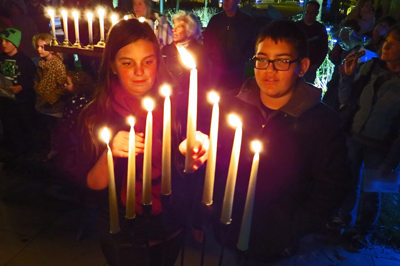
Photo by Marty Cheek (Morgan Hill file photo)
Haley Toch, 12, and Matthew Ogden, 12, from Congregation Emeth, light a menorah during the seventh night of Hanukkah at a downtown celebration. The two are going through b’nai mitzvah class.
By Rabbi Mendel Liberow
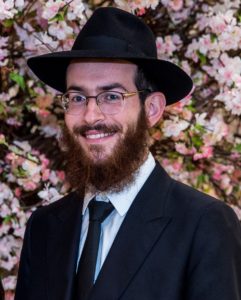
Mendel Liberow
As we prepared for this year’s Chanukah festival at the Morgan Hill Downtown Amphitheater, I was reminded of what Chanukah looked like last year. The United States was in the midst of a devastating wave of COVID infections, and, with vaccines not yet widely available, gathering as usual was out of the question.
But the Jewish people are resilient.
Hundreds joined a drive-in Chanukah event, which was organized by Chabad South County Jewish Center. Together, we watched the lighting of a giant menorah, sang Chanukah songs, and enjoyed an immersive fire show — all from the safety of our own cars. Yes, we were a bit farther apart, but the joy of Chanukah was undiminished. We also held virtual celebrations for those unable to safely join in-person distanced events, and we delivered Chanukah treats and craft boxes to families celebrating at home.
It wasn’t an easy Chanukah, but it’s far from the most difficult our people have endured.
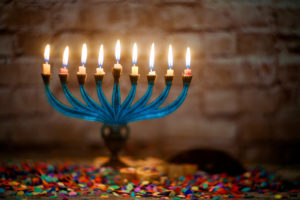
Jewish holiday, Holiday symbol Hanukkah Brightly Glowing Hanukkah Menorah.
In 1944 in the Buchenwald concentration camp, observing anything Jewish was grounds for horrendous abuse by the Nazi guards. Even praying could bring days of solitary confinement and starvation. Celebrating Chanukah seemed out of the question.
But the Jewish people are resilient.
A group of Jews led by Simche Unsdorfer decided that the menorah simply had to be lit. So they put a small quantity of pilfered machine oil in a shoe polish container. They lit a wick made from a few threads with matches exchanged for their meager ration of thin soup.
They lit one candle under a bunk. One tiny flame.
Then a guard burst in. “It stinks of oil,” he exclaimed, and began searching for the source. He was steps from the bunk when an air raid siren went off, and the guard ran for his life to shelter while the inmates — as they were required — ran to open ground.
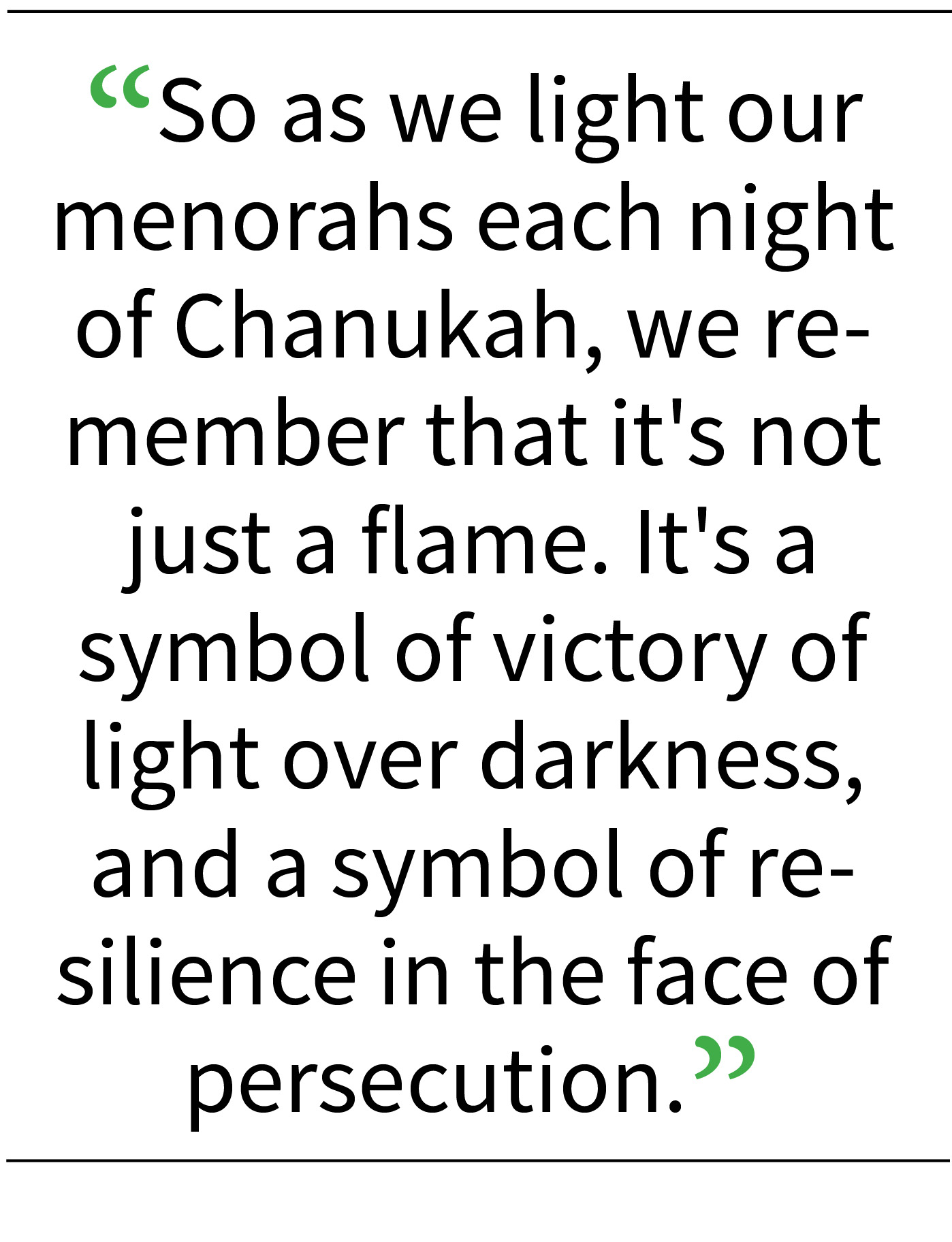 “Outside, in the ice-cold, star-studded night, with the heavy drone of Allied bombers over our heads, I kept on muttering the traditional blessing to the G‑d who wrought miracles for His people in past days and in our own time,” Unsdorfer recalled. “The bombers seemed to be spreading these words over the host of heaven.”
“Outside, in the ice-cold, star-studded night, with the heavy drone of Allied bombers over our heads, I kept on muttering the traditional blessing to the G‑d who wrought miracles for His people in past days and in our own time,” Unsdorfer recalled. “The bombers seemed to be spreading these words over the host of heaven.”
We didn’t always have to hide.
In fact, a key component of Chanukah’s observance is to share the light and publicize the miracle of Chanukah: that a small, outnumbered band of Jews fought off their Syrian-Greek oppressors and were able to rededicate the Holy Temple, which the Syrian-Greeks had defiled. When they lit the menorah (candelabra) in the Temple, the small amount of oil they had — enough for one day — miraculously lasted eight days, until new oil could be brought.
When Jewish people were free to observe their traditions, this Chanukah miracle was commemorated by lighting the menorah in public, outside their homes for all to see. But then came millennia of hatred and persecution, and the menorah had to be hidden. Hidden in jugs in the cellar in Inquisition-era Spain. Hidden behind closed doors and drawn curtains in Soviet Russia. And hidden under a bunk in Buchenwald.
But the Jewish people are resilient.
 My grandfather, Rabbi Sender Liberow, grew up in Soviet Russia, where religious people were treated as enemies of the state and where private observance of Chanukah — let alone public — was fraught with danger.
My grandfather, Rabbi Sender Liberow, grew up in Soviet Russia, where religious people were treated as enemies of the state and where private observance of Chanukah — let alone public — was fraught with danger.
So when he — and so many other Jewish people — settled in the free world, it was with pride and determination that they once more celebrated Chanukah publicly — as it was always meant to be.
The Chanukah campaign, launched in 1973 by the Rebbe — Rabbi Menachem M. Schneerson, of righteous memory — has revitalized the public observance of the holiday, as more than 15,000 giant public menorahs are placed by Chabad each year.
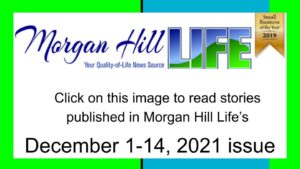 So as we light our menorahs each night of Chanukah, we remember that it’s not just a flame. It’s a symbol of the victory of light over darkness, and a symbol of resilience in the face of persecution.
So as we light our menorahs each night of Chanukah, we remember that it’s not just a flame. It’s a symbol of the victory of light over darkness, and a symbol of resilience in the face of persecution.
Come what may, the menorah will always shine forth.
Rabbi Mendel Liberow is the director of Chabad South County Jewish Center in Morgan Hill, which offers Jewish education, outreach and social service programming for families and individuals of all ages, backgrounds and affiliations. For more information, visit JewishMH.com.






